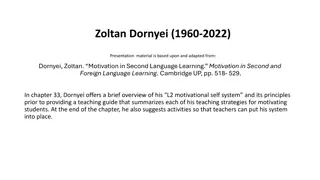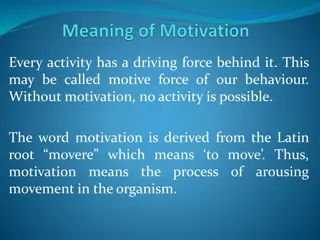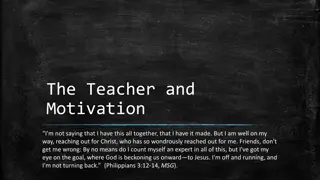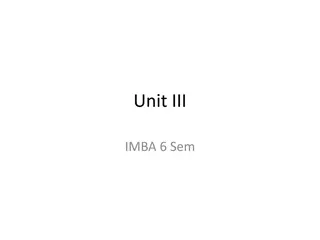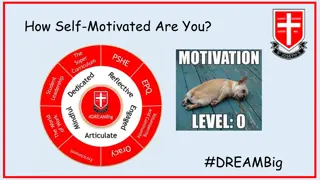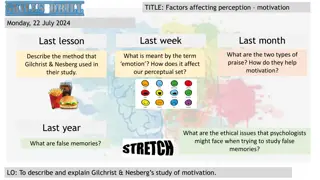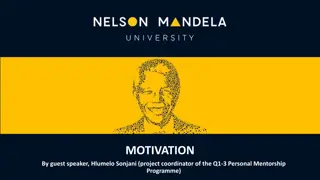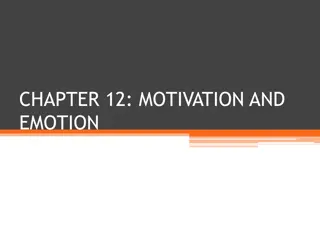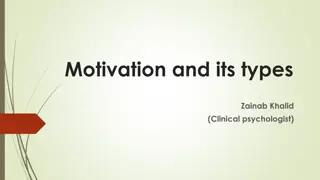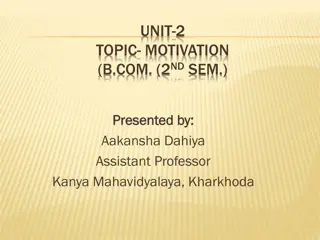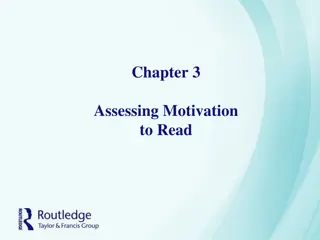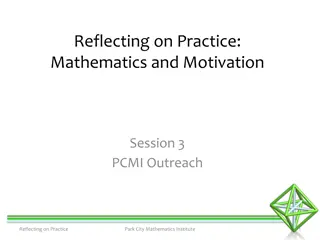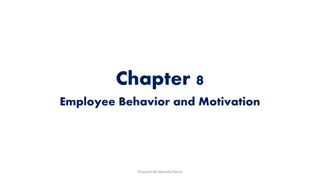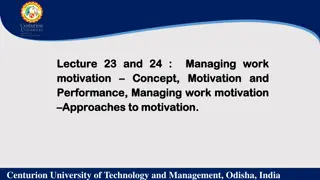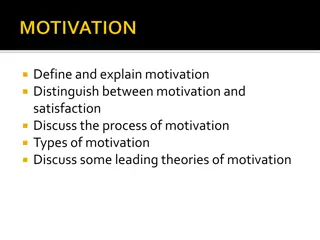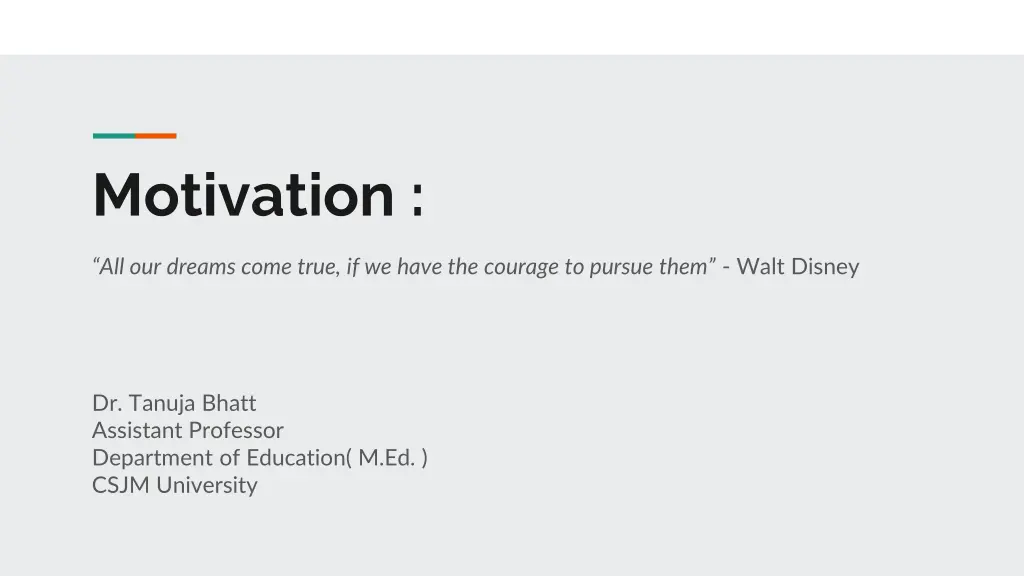
Understanding Motivation in Education
Explore the concept of motivation in education, covering topics such as the motivational cycle, kinds of motivation, needs, drives, incentives, hierarchy of needs, and the principles of motivation. Learn how motivation influences behavior and drives success in the classroom setting.
Download Presentation

Please find below an Image/Link to download the presentation.
The content on the website is provided AS IS for your information and personal use only. It may not be sold, licensed, or shared on other websites without obtaining consent from the author. If you encounter any issues during the download, it is possible that the publisher has removed the file from their server.
You are allowed to download the files provided on this website for personal or commercial use, subject to the condition that they are used lawfully. All files are the property of their respective owners.
The content on the website is provided AS IS for your information and personal use only. It may not be sold, licensed, or shared on other websites without obtaining consent from the author.
E N D
Presentation Transcript
Motivation : All our dreams come true, if we have the courage to pursue them - Walt Disney Dr. Tanuja Bhatt Assistant Professor Department of Education( M.Ed. ) CSJM University
The secret of getting ahead is getting started - Mark Twain OVERVIEW Concept of Motivation The Motivational Cycle Kinds of Motivation Needs, Drives and Incentives Hierarchy of needs Homeostasis Principles of Motivation Techniques of Motivation in classroom situation
Concept of Motivation Motivation is the biological, emotional, social and cognitive force that activate behaviour in everyday usage. A motive drives our behaviour as a motor vehicle is driven by the fuel in its tank. The motives can be broadly classified into : 1. 2. Primary motives Secondary motives
Kinds of Motivation Can be broadly classified into two kinds: 1. 2. Natural motivation or Intrinsic motivation Unnatural motivation or extrinsic motivation
Needs, Drives and Incentives NEEDS Physiological and biological needs Socio-psychological needs DRIVES A need gives rise to drive which maybe be defined as an aroused reaction tendency or a stage of heightened tension that sets up activities in an individual and sustain them for increasing his/her general activity level INCENTIVES
Homeostasis The term HOMEOSTASIS was coined by W.B. Cannon a prominent Harvard University physiologist. It is the tendency to maintain a balance, or optimal level within a biological theory.
Principles of Motivation Motivation is the keyword and essential requirement for the success of the teaching-learning process carried out in the classroom. On the basis of researches and experience in the field of motivation, psychology and pedagogy following are the general principles : Principle of readiness to learn Principle of capitalising on the needs and motives Principle of active participation in learning Principle of arousing and maintaining interest Principle of capturing and sustaining attention Principle of clarity and definiteness of goals and purposes Principle of proper organisation of the instructional material Principle of employing proper methods and devices Principle of creating an open and positive environment
Principle of change and variety Principle of providing proper feedback Principle of providing Incentive and reinforcement Principle of resorting to internal motivation Principle of ensuring success Principle of maintaining mild level of anxiety Principle of affiliation and approval Principle of good rapport between teacher and student Principle of realistic expectation front he students Principle of avoiding intense competition among students Principle of setting good example and models Principle of efforts and enthusiasm of the teacher
Techniques of Motivation in Classroom Situation Motivation occupies a central place in the teacher-learning process. It is in fact, indispensable to learning. Few techniques of motivation are as follows : Child centered approach Linking the new learning with the past Use of effective methods, aids and devices in teaching Definiteness of the purpose and goals Knowledge of the results and progress Praise and reproof Rewards and punishment Competition and cooperation Ego involvement Development of proper attitude Appropriate learning situation and environment
REFERENCES Brown, J.S.,The motivation of behaviour, McGraw-Hill, New York, 1961 Mangal S.k. (2017), Essentials of educational psychology: PHI Learning private limited https//www.verywellmind.com

